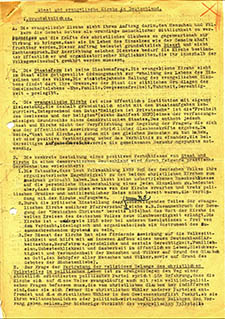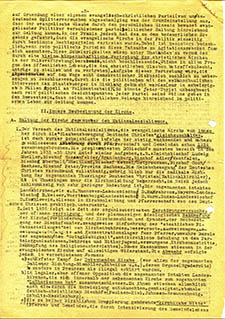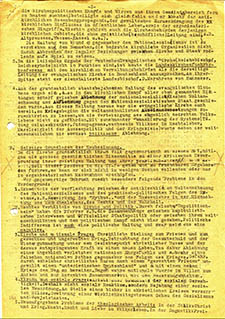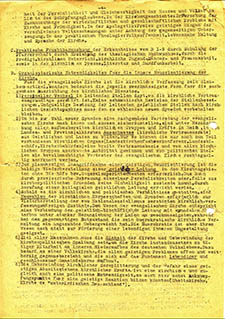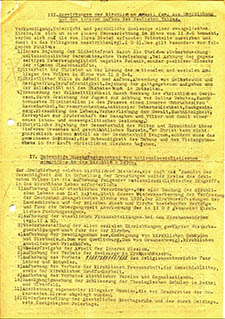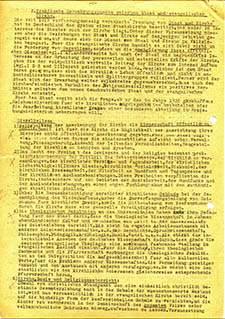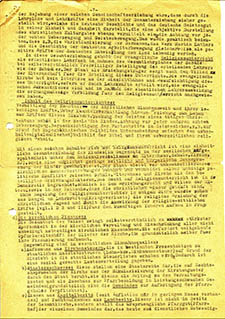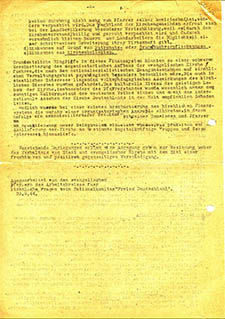Memorandum on the “State and Protestant Church”
The NKFD also reflected on issues of postwar Germany’s reorganization. Walter Ulbricht especially had reports and memoranda drafted on cultural, sociopolitical and economic institutions and measures.
The Council for Church Affairs attempted to elucidate the Christian view of Nazi and Communist ideology in its written statements to the Soviets and the KPD in exile. It also drafted plans for a new role for the churches in a Germany after Hitler.
Starting in the fall of 1944, the Protestant theologians Schröder, Krummacher and Sönnichsen jointly drafted texts on “Christ and Politics”, “Christ and Revolution” and the “New Testament and State”, among others.
In September of 1944, the three reflected on the relationship of the “State and Protestant Church in Germany”. They described public and organizational options that had to be granted it [the church] within the national community so that it can fulfill its commission to preach God’s commandments to people and nations as the basis of human morality and to bring the strengths of the Christian faith to bear with such relevance for the present that they bear fruit in the life of individuals as well as the community.
The church’s negative view of Nazi ideology since 1933, a profound reappraisal of the national and social question among other issues, and organizational changes after the war’s end were the foundation for a future positive relationship between the church and state in a democratic Germany.
They outlined the Nazis’ infringement and encroachments on church life that would have to be reversed. Then, they established the need to retain schools of theology at universities and religion class’s status as a full subject at public schools. Lastly, they furnished information on the legal situation and warned against fundamental intervention in church’s financial system. In parts, this list of demands was irreconcilable with the principle of the separation of church and state discussed at the 10th general assembly of the NKFD.
The text also went to clergy in other camps and was discussed in various circles, even with committees of the NKFD and Communists.
Source / title
- © Christiane Godt-Schröder

